Wheat is one of the most important cereal crops in the world, providing food for billions of people. It is a highly adaptable crop and can be grown in a variety of climates and soil types. Its plants are an annual grass that can grow up to four feet tall, with a single stem and narrow leaves. This crop takes five months to harvest. Normally it is cultivated in November and harvested in April.
Are Any Impacts On Human?
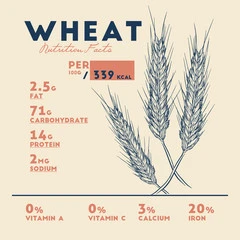
Wheat is the most important staple crop in temperate zones and is in increasing demand in countries. In addition to being a major source of starch and energy, It also provides substantial amounts of a number of components which are essential or beneficial for health, notably protein, vitamins likes notably B vitamins dietary fiber, and phytochemicals. |
Nutrition Facts and Health Effects
- Nutrition
- Vitamins & Minerals
Nutrition Effects
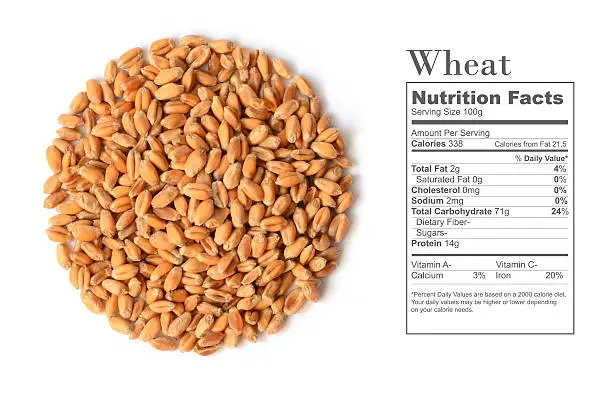
It is mainly composed of carbs but also has moderate amounts of protein. Here are the nutrition facts for 3.5 ounces (100 grams)
- Calories: 340
- Water: 11%
- Protein: 13.2 grams
- Carbs: 72 grams
- Sugar: 0.4 grams
- Fiber: 10.7 grams
- Fat: 2.5 grams
Vitamins & Minerals
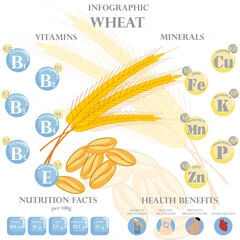
Wheat is a good source of several vitamins and minerals.
- Selenium
- Manganese
- Phosphorus
- Copper.
- Folate
Health Effects On Human Diet.
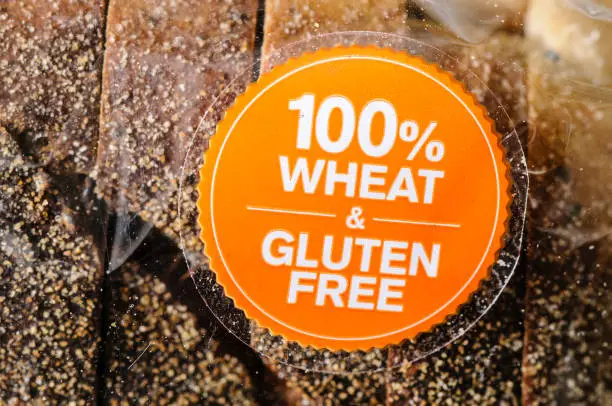
It provide energy. Your body breaks down the starches and sugars into glucose. Such item is a good source of carbohydrates and some vitamins and minerals. Whole particular have many benefits for your health.
Selenium

This trace element has various essential functions in your body. The selenium content of wheat depends on the soil.
Manganese
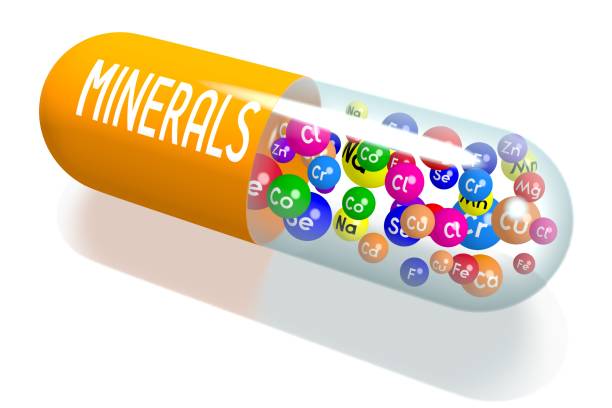
Manganese found in high amounts in whole grains, legumes, fruits and vegetables, manganese may be poorly absorbed from whole wheat due to its phytic acid content
Phosphorus
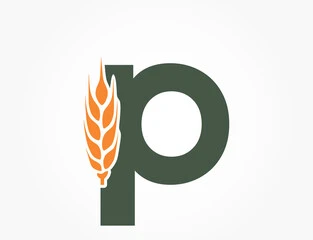
Phosphorus provides us an essential role in the maintenance and growth of body tissues.
Copper

Copper an essential trace element, copper is often low in the Western diet. It may have adverse effects on heart health.
Folate
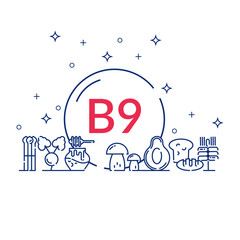
Folate is one of the B vitamins, folate is also known as folic acid or vitamin B9. It’s particularly important during pregnancy.
Side Effects.
There nutrition facts and its benefits may outweigh drawbacks for some people.
Celiac disease
This is a disease of the immune system. With celiac disease, your small intestine goes into overdrive when you eat gluten.
Wheat sensitivity
The number of gluten-free diet adherents is greater than the number of people who have celiac disease. These items have a bad reputation because some individuals believe they are intrinsically hazardous to their health.
Irritable bowel syndrome
IBS have many types. Detail as under
- Allergy
- Antinutrients
How Many Types Of Its Products?
There are several types of wheat products.
- Food Products
- Medicine Products
- Industrial Products
Food Products

| breads | muffins | noodles | pasta |
| biscuits | cakes | cookies | pastries |
| cereal bars | sweets | savory snack foods | crackers |
Industrial Products

there are many types of industrial products made from wheat
- starch.
- gluten.
- germ.
- bran.
- germ oil.
- maltodextrin.
- lysine.
- amino acids.
Medicine Products
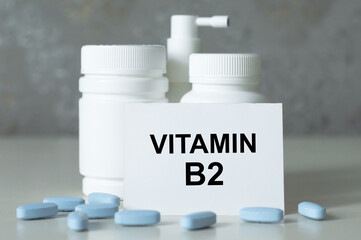
It provide benefits in alleviating the symptoms of chronic inflammation. Betaine, which helps prevent inflammation and other disorders like Alzheimer’s disease, cognitive decline, heart disease, diabetes and osteoporosis may be found in it and is found in many other foods.
Health Benefits
- 15 grams of protein
- 10.6 grams of dietary fiber
- 71.2 grams of carbohydrates
- 38 milligrams of calcium
- 136 milligrams of magnesium
- 352 milligrams of phosphorus
- 376 milligrams of potassium
- 39 micrograms of folate
- 5.5 milligrams of niacin
- 0.5 milligrams of thiamin
Which Recipes Most Papular?



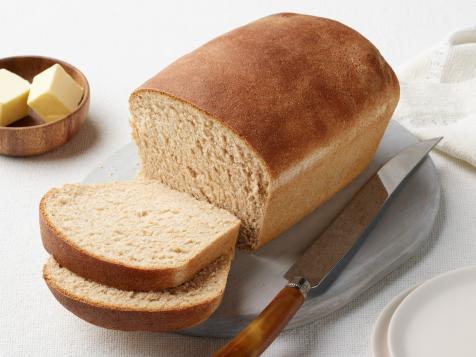
Conclusion
Wheat is one of the most important cereal crops in the world, providing food for billions of people. It is a highly adaptable crop and can be grown in a variety of climates and soil types. wheat also provides substantial amounts of a number of components which are essential or beneficial for health, notably protein, vitamins likes notably B vitamins dietary fiber, and phytochemicals.
FAQs
What is Wheat?
wheat is several species of cereal grasses of the genus Tritium (family Ponceau) and their edible grains
Which kind of Impacts on human body?
Wheat provide energy. It provides source of carbohydrates and some vitamins and minerals.
How many types of wheat products?
there are several types of products like food products, medical and industrial products.
Which elements are necessary for human body?
Human body is combination of different elements like proteins, carbohydrates, fates and phosphorus.
What kind of products made from wheat
we make different items like cakes, breads, pizza and cerelac.



Pingback: 10 Ultimate Compitive Difference Between Basmati and Jasmine Rice
Pingback: Agriculture Guides Drone Farming The Future Of Farming :How Drones Are Revolutionizing Farming - 2024